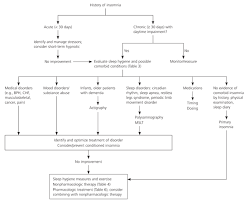The Importance of Outpatient Mental Health Services
Outpatient mental health services play a crucial role in providing support and treatment for individuals dealing with various mental health issues. Unlike inpatient services that require patients to stay in a facility for an extended period, outpatient services offer flexibility and allow individuals to receive care while continuing with their daily lives.
Benefits of Outpatient Mental Health Care
One of the key benefits of outpatient mental health services is accessibility. Patients can schedule appointments at convenient times and receive treatment without disrupting their work, school, or family responsibilities. This accessibility promotes regular engagement with mental health professionals, leading to better outcomes and ongoing support.
Outpatient care also allows for personalized treatment plans tailored to the individual’s specific needs. Mental health professionals work closely with patients to develop strategies for managing symptoms, improving coping skills, and enhancing overall well-being. This collaborative approach empowers individuals to take an active role in their recovery journey.
Types of Outpatient Mental Health Services
Outpatient mental health services encompass a range of treatments and therapies designed to address various mental health conditions. These may include:
- Individual Therapy: One-on-one counseling sessions with a therapist to explore thoughts, emotions, and behaviors.
- Group Therapy: Supportive group sessions led by a therapist where individuals can share experiences and learn from one another.
- Medication Management: Monitoring and adjusting medication prescriptions under the supervision of a psychiatrist or psychiatric nurse practitioner.
- Cognitive Behavioral Therapy (CBT): A structured therapy approach focused on changing negative thought patterns and behaviors.
- Psychoeducation: Providing information about mental health conditions, coping strategies, and resources for self-care.
Conclusion
In conclusion, outpatient mental health services are vital resources for individuals seeking support for their mental well-being. By offering accessible, personalized care that empowers individuals to actively participate in their treatment, outpatient services contribute to improved outcomes and enhanced quality of life for those facing mental health challenges.
Understanding Outpatient Mental Health: Key FAQs on Seeking Help, New Treatments, and Managing Challenges
- What to do if someone is mentally unstable and won t get help?
- What are three of the newest treatments for mental disorders?
- What not to do when struggling with mental health?
- What is outpatient mental health?
What to do if someone is mentally unstable and won t get help?
When dealing with a situation where someone is mentally unstable and unwilling to seek help, it can be challenging and distressing. In such cases, it is important to prioritize the individual’s safety and well-being. One approach is to encourage open communication and express genuine concern for their welfare. Listening without judgment and offering support can help build trust and rapport. Additionally, reaching out to mental health professionals or crisis intervention services for guidance on how to assist the individual can be beneficial. It may also be necessary to involve trusted family members or friends in creating a supportive network around the person in need. Ultimately, showing compassion, patience, and understanding while exploring available resources can be crucial in encouraging the individual to eventually accept help for their mental health issues.
What are three of the newest treatments for mental disorders?
In the realm of outpatient mental health, three of the newest treatments for mental disorders that have garnered attention and shown promise include transcranial magnetic stimulation (TMS), ketamine therapy, and virtual reality exposure therapy. Transcranial magnetic stimulation involves using magnetic fields to stimulate nerve cells in the brain, particularly in cases of depression where traditional treatments may have been ineffective. Ketamine therapy has emerged as a potential breakthrough for treatment-resistant depression, offering rapid relief for symptoms. Virtual reality exposure therapy utilizes immersive technology to create controlled environments for individuals to confront and manage anxiety-related disorders effectively. These innovative approaches highlight the evolving landscape of mental health care and provide new avenues for individuals seeking alternative treatment options.
What not to do when struggling with mental health?
When struggling with mental health issues, it is important to avoid certain behaviors and actions that may exacerbate the situation. Firstly, it is crucial not to isolate oneself from support systems such as friends, family, or mental health professionals. Isolation can intensify feelings of loneliness and hopelessness. Additionally, avoiding self-medication through substances like drugs or alcohol is essential as they can worsen mental health symptoms and lead to dependency. It is also important not to dismiss or minimize your feelings – seeking help and acknowledging your struggles is a sign of strength, not weakness. Lastly, avoiding self-criticism and practicing self-care are vital in maintaining a positive mindset during challenging times.
What is outpatient mental health?
Outpatient mental health refers to a type of mental health care where individuals receive treatment, counseling, and support on an outpatient basis without being admitted to a hospital or residential facility. This approach allows patients to attend therapy sessions, medication management appointments, and other mental health services while continuing with their daily activities and living in their own homes. Outpatient mental health services are designed to provide flexible and personalized care that addresses a wide range of mental health conditions, empowering individuals to actively participate in their treatment and recovery process. With accessibility, tailored treatment plans, and various therapeutic options, outpatient mental health plays a crucial role in supporting individuals’ well-being and promoting positive mental health outcomes.





hi!,I rreally luke your writing verdy so much! proportion we bbe inn contact exxtra abot your post oon AOL?
I need an expert in this house too solvve my problem.
Maybe that’s you! Taking a look ahead tto peer you.
Thank you for your kind words! We appreciate your interest in the topic of outpatient mental health services. If you have any specific questions or need further information, feel free to reach out to us through the provided contact details on our website. We’re here to help and support you in any way we can.